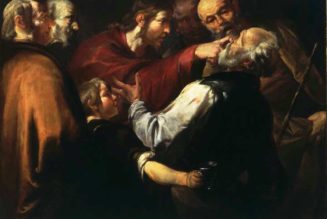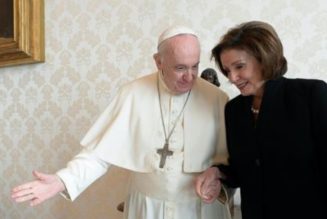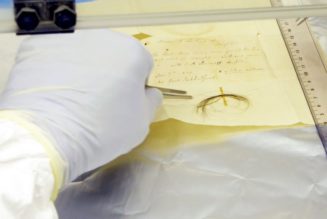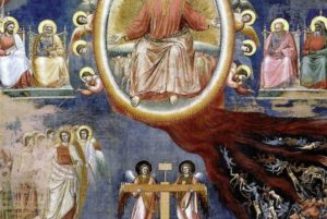Happy Friday friends,
It’s been a busy week in the news, and there’s a lot to get through. But before I do, I want to flag something JD wrote on Twitter this week.
A lot of the stories we cover here at The Pillar have to do with what we can call “lapses” among the Church’s leadership. JD was asked recently if our work has a negative impact on his faith; it’s a question we both get from time to time.
Last night, someone asked me if doing The Pillar’s work was harmful to my Catholic faith.
Here’s what I told them:
— JD Flynn (@jdflynn) December 14, 2022
JD explained, and I agree, that sin is an inevitable human reality — indeed the entire mystery of salvation, and the mission and existence of the Church is predicated upon it. That sin exists in the Church should neither surprise us, nor cause us undue scandal (undue, I say), any more than when we discover sin, and a disposition toward it, in ourselves.
And, like JD, I have to constantly ask myself if I am a witness to the Good News, or if my words and actions speak against the message of Christ’s incarnation, death, and resurrection.
That’s an especially good thing to think about during Advent — for any of us.
This week, I went to a penitential liturgy to make sure I got a good confession in before Christmas arrives. The Gospel was Luke’s account of St. John the Baptist’s words to the crowds who came for baptism.
“Who warned you to flee the coming wrath?” the saint demands of this “brood of vipers” before imploring them to “bear fruit in keeping with repentance.”
Thankfully, the Church frequently warns us to be mindful of our sins, and to seek the forgiveness of the Lord. But the Baptist’s warning about bearing fruit was well timed as I waited for confession.
All too often I can approach the sacrament of penance with a necessary awareness and remorse for my failures, but will all too little hope or expectation that I can truly and profoundly bear new fruit.
“Repentance,” my usual confessor reminds me, is better said as “conversion” — and better still as “μετάνοια.”
Metanoia doesn’t just mean a breach with the past, but a new direction entirely. I have to believe I can be reoriented — not through some Pelagian act of moral resolution, but through openness and disposition to God’s grace — with the same conviction I believe my past sins are truly forgiven. Otherwise I’d simply be like Luther’s dunghill waiting for snow.
The same is true for the Church. Her members fail, yes, in ways both petty and grave. But we – I – have to believe that conversion after corruption isn’t just possible, it is essential. If conversion were not possible, what would be the point of the Good News we celebrate this season?
But, of course, conversion has to begin with an honest reckoning with where we are, and what needs to change.
That is how I try to puzzle through the challenge of reporting on often unpleasant and discouraging events within the Church — to believe in something much more profound than mere “reform,” to hope for real conversion, and to recognize that it’s me who has to convert first of all.
Anyway, here’s the news.
The News
We reported this week that during his time as president of the Pontifical Council for the Family, Archbishop Vincenzo Paglia diverted hundreds of thousands of euros earmarked for missionary and charitable projects to pay for building projects in Rome.
We think this is a significant report, and it took a while for us to investigate it.
From there, officials told us, much of the money was used to pay for building work done on the council’s offices, as well as the renovation of Paglia’s Vatican apartment, instead of going to designated projects, like helping Brazilian orphans.
The same officials also told us how the move was detected, and about the investigation that followed, and how Paglia, as one of them put it, “robbed Peter to pay Paul” when asked to put the money back.
Officials also pointed out that loose regulations and poor oversight of Vatican-registered funds and foundations have enabled moves like Paglia’s, which was not a unique case, they said.
All this, we were told by officials close to the Secretariat for the Economy and the Office of the Auditor General, played into changes to Vatican financial laws made by Pope Francis last week.
In general, the diversion of funds intended for missionary and charitable works towards rather less evangelical, more mundane uses is a real problem in the Church, and it factors heavily in reporting on how money is collected and spent by the Vatican — like, for example, questions which have been raised about how the Peter’s Pence collection is marketed vs how it is allocated.
Back to Archbishop Paglia — as a matter of basic professional practice, we asked him to respond to what our investigation unearthed, to comment on our story before we published it, and to clarify anything he thought was inaccurate.
Indeed, we expressed hope that his account would enrich the caliber of our reporting.
We didn’t get a response, which surprised us.
Paglia was president of the Pontifical Council for the Family until 2016, when it was merged into the new Dicastery for Laity, Family, and Life. Since then, he has led the Pontifical Academy for Life and been a noticeably media-forward figure, participating in – some might say starting- often-fractious public debate about the future of Humanae vitae and the prospect of a “paradigm shift” for the Church’s approach to sexual ethics, life issues and the natural law.
The archbishop has always had a flair for the dramatic, and never been an especially shy character — when he was a diocesan bishop, he came to prominence when he had a naked portrait of himself painted into a fresco he commissioned for the rear wall of his cathedral.
After our report’s publication, Paglia’s secretary did get in touch, to say the archbishop had read the post and “instructed a lawyer based in the United States to initiate a lawsuit against [The Pillar] for the serious defamation represented by part of [our] writing.”
Archbishop Paglia’s secretary said the archbishop had himself paid for the renovations of his apartment, though he has thus far declined to answer our questions about reports to the contrary.
We are, of course, always grateful to have new readers — the archbishop being no exception. We passed along contact details for his lawyer to get in touch, and repeated our offer to interview Paglia so we can give his account of things the fullest possible airing. We hope we’ll be able to interview the archbishop.
While we wait to hear back, you can read the whole story here.
—
In Nicaragua, Bishop Rolando Álvarez has been charged with conspiracy, and several lay associates have been taken into police custody.
The bishop, who has been under informal house arrest for months, is the best-known voice of Catholic opposition against the regime of Nicaraguan President Daniel Ortega, whose regime has drawn international condemnation.
This year alone, the government has expelled the Vatican’s nuncio to the country, along with 18 sisters of the Missionaries of Charity, and jailed 10 priests and seminarians, while at least 7 priests have been exiled.
Please stay up to date with this story, and pray for the bishop.
—
Heidi Crowter, the 27-year-old UK disability rights campaigner, is a woman of inspiration.
In July, she challenged a UK law permitting abortion up to birth on grounds of disability at the High Court in London. When that failed, she brought the challenge to the Court of Appeal. When that too was rejected, she promised to take it to the UK’s Supreme Court.
For Crowter, the campaign’s waging is personal. Born with Down syndrome, she has fought unceasingly to end a law which treats her, and others who share her condition, as unworthy of even the minimal legal protections afforded to unborn children in the UK.
Apart from her campaigning work, her life is a rebuke to the patronizing and dehumanizing way in which many Western societies treat people with Down syndrome. She was diagnosed with leukemia, pneumonia, and kidney failure, and underwent surgery to repair a hole in her heart not long after birth.
After battling through those challenges, she attended school, qualified as a hairdresser, and married her husband in 2020.
If you want to meet an inspiring woman, read this conversation.
—
Pope Francis accepted the resignation of Bishop Donald J. Kettler Thursday as bishop of Saint Cloud, Minnesota.
The pope named Fr. Patrick Neary, C.S.C., to succeed Kettler, who had served three years beyond the nominal retirement age of 75. You can read about the appointment and the new bishop here.
But you probably have a more pressing question about this story: “Sorry, Saint Cloud?”
If you’ve only encountered the name as the fictional setting of John Irving’s novel “The Cider House Rules,” you might think, as Irving asserted, that there was no such person, and that place name comes from “the fervent backwoods Catholic instinct to put a Saint before so many things — as if to grant those things a grace they could never quite acquire naturally.”
But, as with so much in that bleak and depraved work, that’s wrong.
But the town of St. Cloud, it turns out, wasn’t actually named out of devotion to Cloud. It was named for an inside joke.
Read all about St. Cloud, both saint and town, here.
Fair warning, there are also some gratuitous and silly Care Bears jokes.

—
The case of Fr. Marko Ivan Rupnik, SJ, developed further this week with the news that he had actually been, well, excommunicated for a time.
Sosa said that Rupnik had expressed contrition, and so the penalty had been remitted, though he was very light on the details of exactly what happened, how, why, and in what order.
Indeed, while Sosa’s comments certainly brought new details to the light, the whole situation continues to raise more questions. A lot more.
We still don’t have clarity on what canonical process arrived at declaring Rupnik’s excommunication, or what — if anything — Rupnik had to do to manifest his contrition.
And it’s not at all clear how or why Rupnik was able to continue to lecture, given a Vatican Lenten meditation, meet with the pope, receive awards, design logos for Vatican events, and generally be feted as a man of faith and learning while, we are now told, he was on restricted ministry and had apparently been found guilty of abusing the confessional.
To help you parse the knowns, and the known unknowns, and the unknown unknowns, we’ve put together an explainer on the whole situation.

—
A group of clergy and laity gathered in Baltimore last month for the inaugural meeting of the USCCB’s Institute on the Catechism.
The institute is intended to be a proactive response to changes in the catechetical landscape: the religiously disaffiliated, the growing percentage of Hispanic Catholics, and the increased use of technology in catechesis.
Chinese justice in Hong Kong (and the Vatican)
For those of you who don’t know, or remember, Jimmy is the jailed Catholic Hong Kong newspaper publisher and pro democracy campaigner.
Ever since the demonstrations in 2019, the government has been absolutely locked on to bring him down, shuttering his business, closing his newspaper (one of the last truly free media in Hong Kong), and piling on the charges against him.
He’s been in jail since December 2020, originally for the crime of attending a candlelight prayer vigil on the anniversary of the Tiananmen Square Massacre.
Last week, the courts added another six months for fraud charges related to the subletting of office space in the building where his publishing company had their headquarters. I’m editorializing here, but the fraud allegations were — and this is the technical legal term — bullshit.
But more serious than all of these are the charges Jimmy is facing under the provisions of the National Security Law, brought in in 2020. He’s accused of encouraging foreign governments to impose sanctions on Hong Kong and Chinese officials over the suppression of pro-democracy demonstrations — and he faces life in prison.
The national security trial is meant to be underway already, but the whole process has been delayed until next September because the chief executive of the Hong Kong government has asked Beijing to step in because — and I am not making this up — he objects to Jimmy Lai’s lawyer.
It’s a move with a single purpose — to deny Lai’s right to a proper legal defense and to ensure he can’t get a top shelf lawyer of his choice.
You might think this is all of a piece with Chinese justice, and what does it matter because the system is all rigged anyway, right? No. This matters a LOT.
Cardinal Zen announced this week that he is appealing his conviction and fine over his supposed failure to properly register a charity of which he was a trustee. The cardinal wouldn’t be doing that if his legal team didn’t think there was at least some chance of success.
Chow Hang-tung was convicted for many of the same “unauthorized assembly” crimes Lai is in jail for. She’s also a good lawyer, with a very good legal team, and proof that, even in Hong Kong, that can make all the difference.
The right to qualified legal representation of your choice is an absolutely bedrock principle of justice. Even in Hong Kong, getting a good lawyer matters — and the right to be able to get one is one of the absolute first and last marks of a functioning legal system.
As a final note: I’d just like to point out that although the local government is trying to deny Jimmy Lai the right to appoint a qualified lawyer to defend him in court, the Hong Kong authorities have offered a fig leaf of an argument for why they are doing so — “national security concerns.”
The Vatican court has rejected Milone’s lawyer — a former judge on Italy’s constitutional court, no less — and denied Milone the same right being denied Jimmy Lai in Hong Kong. But unlike Hong Kong, in the Vatican City they haven’t troubled themselves to give a reason. All Milone got was a three word, handwritten note — Non si autorizza.
Of course, Milone faces several other noticeable legal obstacles in his bid to argue his case of wrongful dismissal; no sooner did he file his suit than Vatican prosecutors opened a criminal investigation into him, effectively freezing his case until they decide if they want to bring charges.
My point here is that no one wants to see the wheels of justice turn, and turn credibly, in Vatican City more than me. I have poured a lot of my professional life into covering the events which led to the other trial currently underway in the Vatican, and I want to see it come to a proper conclusion.
But if the Vatican judiciary is going to deny basic legal rights to petitioners like Milone, and the prosecutors are going to give the appearance of doing their jobs with malicious caprice, they are going to bolster the chief argument of the ten defendants on trial — that whatever they did, they can’t get a fair trial in Vatican City.
Prayer time
As most of you know, I have a long and deep-seated passion for horology. I like watches. A lot.
And several readers kindly alerted me this week to a collaboration between a German watchmaker and the Vatican observatory and asked for my thoughts. So, let’s take a look at the KronSegler “Sacristan.”

For a start, this isn’t a new watch — it dates back to about 2013. But it’s new to me, and that’s good enough.
Prices run from a couple of hundred euros to more than four grand, and the chief hook here is, apart from the co-branding with the Vatican observatory, a sub-dial which charts the hours of the breviary: Matins, Lauds, Terce, Sext, Non, Vespers, and Compline.
That’s pretty cool.
In terms of dial design, there are some options, and some are better than others. This one has good symmetry — the roman numerals at 12 and 6 o’clock are balanced by the sub dial at 9 and the observatory coat of arms with a date window at 3. But I have quibbles.

The text at the bottom, listing the hours of prayer is in German (Seriously? With Roman numerals?) not Latin. And if you want a watch that tells you the hours of the office to pray, do you really need them spelled out for you? No. The text just clutters the dial.
This version is a lot cleaner:

The half-circle sub dial is a lot neater and doesn’t insult the intelligence of the wearer by spelling itself out.
But all the options are missing something obvious: why don’t they have a moonphase? I mean for crying out loud, this is a collaboration with an observatory, so I’d have thought it was screamingly obvious you’d want a complication – which is what we call watch features – which charts the night sky, right?

If you put something like this at 3 o’clock on the first version we looked at, moved the observatory crest and date window down and junked the pointless text and the extra roman numeral at 6 o’clock, I think you’d have a winner in terms of design.
As for price? Well, it’s really hard to say.
For a start, the watches are “waterproof” to a depth of 50 meters, which means in reality I wouldn’t wear this in the shower, but you might get away with washing the dishes with it on.
The automatic (self-winding) movement is apparently a kind of in-house creation, the K 029.024, with 24 jewels, and power reserve of “38-42 hours” (this sets alarm bells off for me — the rating should be exact) and running at a frequency of 28,800 vibrations per hour (not great, but not terrible).
They claim the movement is based on a Swiss movement which they tweaked, but they don’t seem to say which one, which again makes me suspicious. But they do insist they do NOT buy in Chinese parts, which is kinda reassuring, I guess, in a “methinks the lady doth protest too much” way.
For a couple of hundred bucks, if you can afford it ,it’s probably worth it for what the watch is — a bit of a novelty for that special cleric you want to give it to. The 4.5K gold version is a definite no-no. Only a mug pays thousands for a gold case around a movement like this.
If you are the kind of person who has that kind of money to drop on a watch: first, please consider joining our 1k club and helping us keep doing the kind of reporting that we think matters to the life of the Church; then call me, I can help you pick something a lot nicer with the three grand you have left.
See you next week,
Ed. Condon
Editor
The Pillar

Join Our Telegram Group : Salvation & Prosperity








